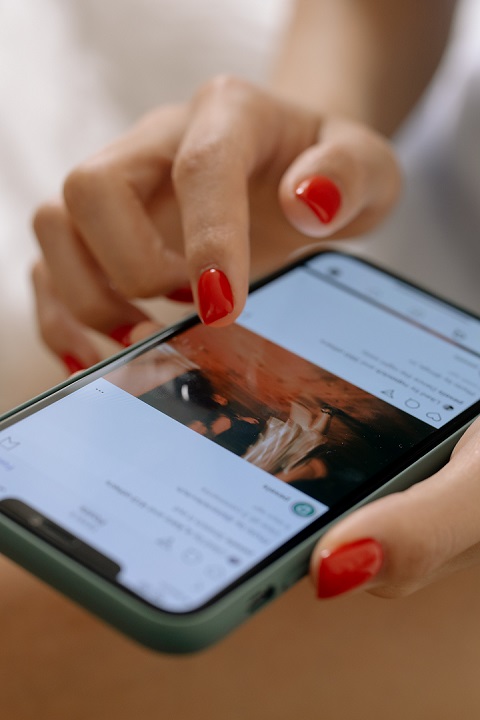
Remember that giddiness you felt when someone you like told you they liked you or something that you did? Today, a little blue thumbs up symbol has the power to trigger that exact feel-good reaction.
No wonder so many people are hopelessly hooked on Facebook, Instagram, TikTok, and other social media platforms. “It’s been proven that social media ‘likes’ affect that part of our brain that has to do with rewards,” says Edgardo Juan Tolentino, MD, Chairman of the Neurological Sciences of the top hospital in the Philippines, Makati Medical Center (MakatiMed). “The more ‘likes’ you get, the greater the release of dopamine, a hormone associated with happiness.”
That’s a lot of happiness hormones for Pinoys. In the updated study “Social Media Statistics in the Philippines,” which is based on a Digital 2023 Global Overview Report, a staggering 84.45 million Filipinos (72.5% of the country’s population!) spend an average of 3 hours and 43 minutes glued to their choice of social media platforms.
Keeping in touch with family and friends was the chief reason for using social media, say respondents. But don’t be surprised if they stay for their dopamine fix, too: 30% of the total users are between the ages of 18 and 24 years old, the ages that seek attention, validation, and a sense of identity.
It’s certainly a tough age to be at a time of fake news, cyberbullying, and love scams. “As great as social media is, it’s traced to depression, isolation, ruined reputations, financial debt, and lives lost of vulnerable individuals,” Dr. Tolentino points out.
“There’s nothing wrong about being appreciated through the number of likes, followers, and positive comments on your post. We all seek to be liked by others,” adds the MakatiMed health expert. “Problems arise when you hinge on people’s every opinion of you—and many of them aren’t even true. Few likes and many mean comments tend to make you wonder whether you are indeed likeable.”
Still, social media can benefit your mental health. “Just make sure you spend as much time offline, cultivating genuine relationships with family and friends in person,” Dr. Tolentino advises. “Have a solid sense of self, so that you are not defined by the number of likes or favorable comments. Learn to distinguish authentic, helpful sites over ones that spread false information, put you down, encourage self-doubt, or convince you to harm yourself or others.”
“Above all, before you want anybody to like you, you have to like yourself first.”
Here are five ways that social media can be good for you:
It can introduce you to supportive communities. Trying to lose weight? Training to run your first marathon? Battling a health issue? “There are social media communities that exist for these and other endeavors,” says Dr. Tolentino. “The right virtual community will make you feel accepted. It will cheer for you when you have accomplishments, root for you when you’re down, and motivate you to make positive and lasting changes in your lifestyle.”
It can make you feel less alone. Legitimate virtual groups for anxiety, depression, grief, and loneliness can see you through some of your most challenging times when family and friends can’t and seeking professional help is too costly. “Anonymous forums are also available for those who just want to vent freely and without worrying about anyone recognizing them,” Dr. Tolentino explains. “When people experiencing the same thing come together, they can be there to lean on each other, even virtually, for emotional support.”
It can be an outlet for creativity. Consider TikTok and Instagram, two highly visual social media platforms, your canvases for self-expression. “Share your love for art, music, photography, baking, plants, travel, pets, and just about any passion on these platforms,” Dr. Tolentino shares. “True friends will not only appreciate what you do, they can spread the word on your talent, which may just lead to something positive.”
It can strengthen your most cherished relationships. Is your spouse an overseas Filipino worker? Do your kids and grandkids live halfway around the world? Can’t travel because of your age or physical condition? Social media connects you to your loved ones instantly and in real time. “This is what Filipinos in the study get right—using social media to stay in touch with family and friends,” says Dr. Tolentino. “Now, more than ever, the accessibility of the internet and smart gadgets makes it so easy to contact the people you care for the most. Using video calls to chat with a spouse or best friend you miss so much or seeing your newly born grandchild for the first time will certainly lift your spirits.”
It can open you up to the world. How would you like to take care of dogs and cats, upcycle plastic bottles or old wood, walk for a good cause, feed the hungry, clean up the ocean? Social media can patch you up with groups advocating worthy causes. “Volunteerism makes you realize that your problems and worries are small compared to the struggles of others,” says Dr. Tolentino. “Best of all, it takes you away from social media and brings you into real-life situations where you can participate in helping make a difference in people’s lives. The feeling of being useful to others is better than any Facebook ‘like.’”

